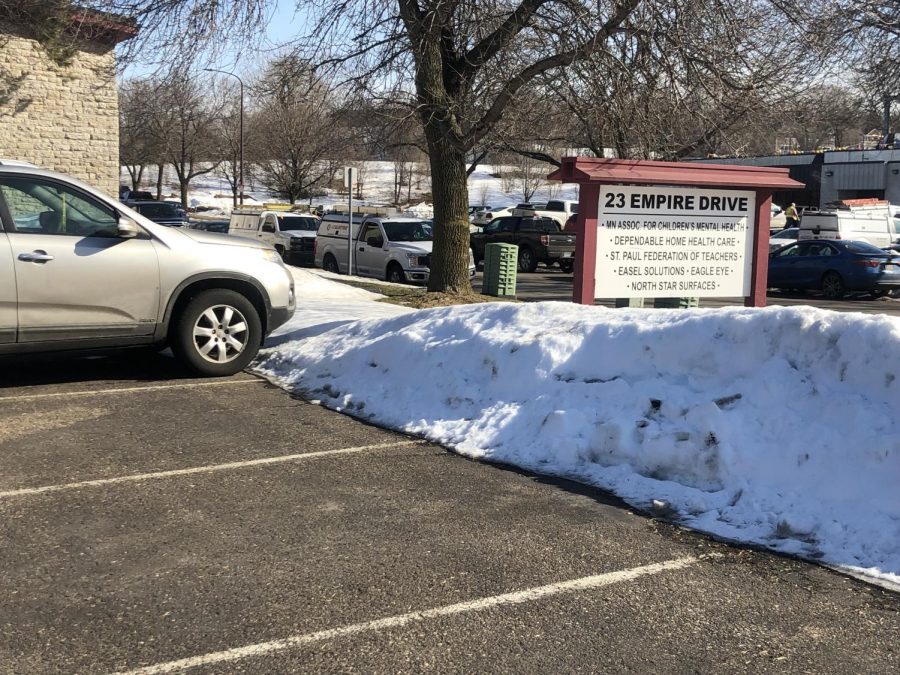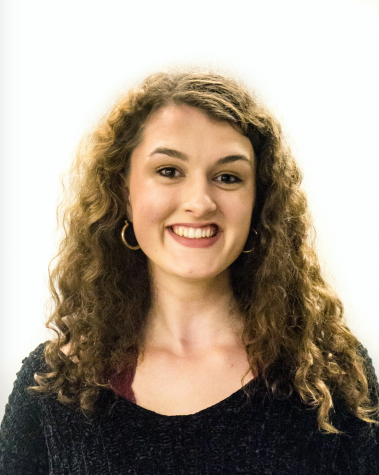St. Paul teachers authorize strike as contract negotiations stall
February 27, 2020
On Thursday, Feb. 20, St. Paul Public School (SPPS) teachers and support staff voted to authorize a strike.
Nearly two-thirds of the St. Paul Federation of Educators’ (SPFE) 3,550 members voted, and 82 percent of those educators in favor of authorization. On Wednesday, SPFE said a strike date of Tuesday, Mar. 10.
Every two years, SPFE renegotiates their contract with SPPS. Negotiations for the 2019-2021 contract started on May 30, 2019 and took place every second and fourth Thursday starting in September.
The contract proposal drafted by SPFE included 31 proposals on behalf of teachers, educational assistants and school and community service professionals — including smaller class sizes and school psychologists.
The union has targeted full staffing every St. Paul Public School with a mental health team comprised of a social worker, school counselor, school psychologist and behavior intervention specialist. Another request is 125 minutes a week for language interpreters to prep for their classes.
“I don’t think we’ve ever gone into any negotiations where we’ve gotten everything that we’ve asked for, especially the way they were originally written is pretty slim,” Faber said.
This is not SPFE’s first strike vote. In 2013 and 2015, SPFE authorized a strike vote but never held one. In 2018, it voted to strike and set a strike date for Feb. 13, 2018 — but agreed to the contract with the district on Feb. 12.
By this December, SPFE President Nick Faber began to think about the possibility of a strike vote in December.
“We weren’t getting any movement on some of our key issues, so we moved into mediation with the Bureau of Mediation Services to move things along and get their assistance,” Faber said. “Our bargaining team was still finding that our district was not coming prepared to the meetings.”
Faber also said that SPPS occasionally did not show for negotiation meetings, something SPPS Director of Communications Kevin Burns denied.
“That’s not true. We’ve shown up to all scheduled meetings,” Burns told The Mac Weekly. “SPPS showed up and attended all meetings, including the superintendent. I believe the superintendent has missed one since May 2019, but SPPS and the superintendent have been at all others.”
In a statement, SPPS made their position on a potential strike very clear — blaming the state for a lack of funding.
“The District is committed to negotiating in good faith until a contract can be agreed upon that is fair to our educators, equitable with other union contracts and is responsible to the taxpayers of Saint Paul,” the statement read. “The reality is Saint Paul Public Schools is underfunded by more than $80 million from the State of Minnesota, including Federal support for special education and related services.”
SPPS argued that the underfunding largely stems from under-enrollment. District enrollment is down 2,000 students since the 2015-2016 school year, and has been falling for years.But there is disagreement on this point, too. Faber said underfunding is the cause rather than the result of under enrollment; if the district would invest more in its support for students, he said, fewer would be leaving the district to pursue private education opportunities.
“Our educators know that it’s the unmet needs of some of our students that are quite often causing our families to leave,” Faber said. “Or not having that multilingual staff.”
Political science professor Lesley Lavery agreed. Her new book on teachers unions, “Collective Pursuits: Teachers Unions and Education Reform,” comes out in May.
“The union calls this a ‘scarcity myth,’” Lavery wrote in an email to The Mac Weekly. “It’s true that the district faces true fiscal constraints. But it’s also true that the state is just creeping back toward pre-recession funding levels.
“The federal government doesn’t contribute much to public education (financially) and doesn’t contribute nearly enough to special education costs which are far outpacing general funding needs,” she continued.
The lack of city funds can be attributed, in part, to significant corporate tax evasion.
In December 2017, two months before Minneapolis hosted the Super Bowl LII, SPFE published a report demonstrating that Founding Sponsors of the Minnesota Super Bowl Host Committee were holding a total of $16.5 billion in 170 tax haven subsidiaries, allowing them to avoid paying corporate taxes in the United States. Sponsors included Minnesota-based companies Ecolab, United Health and US Bank.
At the same time, state aid to public schools, adjusted for inflation, is still almost $1 billion a year less than it was in 2003. Minneapolis and Saint Paul alone bear $400 million a year of this reduction in funding each year.
In 2017, Harding High School English teacher and International Baccalaureate Coordinator Eric Brandt ’95 published an article in The Villager arguing that some of the funding issues could be resolved if more properties in St. Paul paid property taxes, including Macalester College.
“If you get out of the Mac-Groveland neighborhood it is a very different city,” Brandt said in an interview with The Mac Weekly. “There are many people at or below the poverty line, facing a lot of obstacles related to living below the poverty line, and those are really hard challenges.
“As educators we’re under pressure to give kids a world class education but the kids need more support, and that’s what we’re fighting for,” he continued.
According to Lavery, the district and SPFE could be more aligned to push back against the state and federal government.
“The teachers are asking the district to call the state and federal government’s bluff on their contentions that there isn’t any money,” Lavery wrote. “They know the district doesn’t have money.”
Faber said that he frequently speaks with members about students, specifically multilingual students, leaving the district. Union members call Faber regularly about the need for multilingual interpreters.
“Those are the types of things that our members will tell you,” Farber said. “Here’s why parents are leaving. Let’s make sure that our kids’ mental health needs are being met.”
Educational studies professor Brian Lozenski taught for over a decade in public schools in Philadelphia and St. Paul. He taught at Highland Park Middle School a little over a decade ago before leaving to pursue his Ph.D at the University of Minnesota.
Lozenski was a member of SPFE when he worked for the district.
“One of the really important things to recognize is that we can’t have successful schools where educators do not feel as though they have the support,” Lozenski said. “You can’t be an effective educator when you’re struggling yourself.”
Lozenski challenged the common argument that educators disregard students by going on strike.
“I think the logic is, ‘they’re threatening to strike, they don’t care about the kids’ that often gets leveled against unions in general,” Lozenski said. “It is about the children.”
To that end, there are several upcoming mediation meetings during which SPPS and SPFE could reach an agreement and avoid a strike — on Feb. 28, March 5 and March 6.
“No teacher wants to walk out of the classroom,” Faber said. “Our educators love their students that they work with but you get to a point where you feel like those students are not getting their needs met.”
Estelle Timar-Wilcox also contributed reporting to this article.














